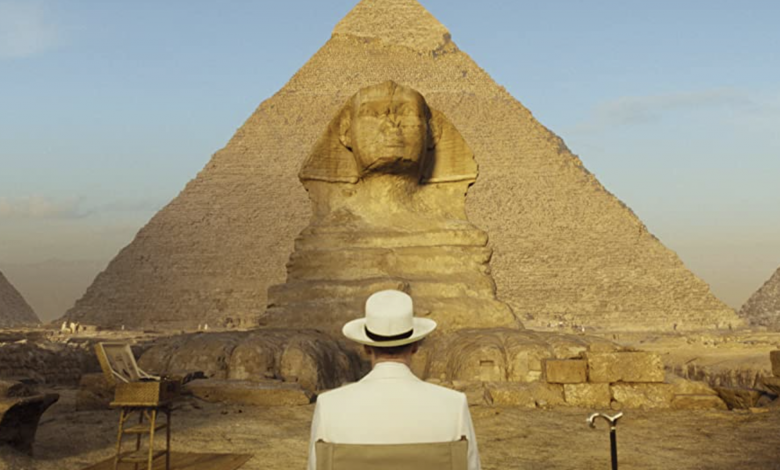Death on the Nile – Review

Renee Lucas ‘22 / Emertainment Monthly Staff Writer
Death on the Nile, the much anticipated sequel to Murder on the Orient Express hit theaters this month, and to no suprise, it did not do much better than its predecessor. The film stars Gal Godot as Linnet, a rich newlywed who takes her inner circle of friends and loved ones on a cruise of the Nile to escape the oppressive glare of her husband’s ex lover. However, once aboard things take a turn for the worst as a murder takes place. The famous detective Hercule Poirot happened to be invited on the cruise, and therefore, takes it upon himself to solve the case.
The aesthetic of the film is quite dazzling, as it appears to have been shot on 65 mm film. The look this gives the film matches nicely with the landscape and the time period in which the story takes place. Unfortunately, those are the only good qualities this film possesses.
As stated above the aesthetic of the film matches the landscape of Egypt very well, but that is the extent of Egypts purpose in this film. There was little to no acknowledgment from the characters as to where they were, or the history that surrounds them. It felt very much like the only reason Egypt was chosen as the setting for this story was because it was exotic, interesting looking, and had a mysterious quality much like the film.
As for the story, it starts with some backstory on the main character, Hercule Poirot. The audience learns that he used to be a soldier, and that an injury to the face is what caused him to grow his famous mustache. However, these flashback scenes just feel like a waste of time. After getting little to no insight on Hercule’s character in the first movie, Murder on the Orient Express, these scenes just feel weird and out of place.
After these scenes ended, the story quickly moved into the mystery, which was very disappointing.
Spoilers ahead.
After about thirty to forty five minutes Linnet, is murdered in her bed. Typically, when a married woman is murdered, its the husband that did it. Instead of avoiding that trope to keep the mystery part of this murder mystery alive and engaging, Micheal Green, the writer, dove into this trope with full force, and dragged the audience down with him.
After two long hours of watching this mystery unfold it was revealed, unsurprisingly, that Linnet’s husband Simon was responsible for her murder. How he pulled it off was rather elaborate and interesting, but when your audience guesses who the killer is a half hour into a two hour movie, it no longer matters how elaborate the explanation is. All in all, Death on the Nile was incredibly boring and predictable.